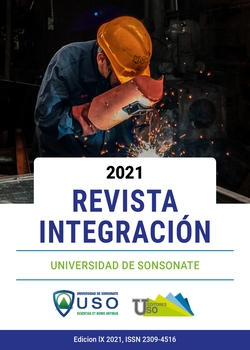Neuropsychology of learning oriented to school inclusion
DOI:
https://doi.org/10.5377/ri.v1i9.18453Keywords:
Neuropsychology of learning, Inclusive learning, Learning disabilities, Neuroscience, Learning problemsAbstract
The research focused on the Republic of Haiti School Center, with the purpose of addressing "Learning Problems" in the classroom, promoting the inclusion of children with cognitive and social difficulties. A descriptive cross-sectional design was used, divided into two phases: the quantitative phase, based on descriptive observations, and the qualitative phase, which consisted of semi-structured interviews with parents. Information was collected from teachers about students with signs of learning difficulties at the basic level.
Key findings revealed that some teachers hold negative attitudes towards the integration of children with learning disabilities into regular schools due to lack of preparation in managing these children and their disinterest. The characterization of children with learning problems covered areas such as oral and written communication, reading, writing, mathematics, cognitive aspects, presentation and order, as well as psychomotor skills. This research raises the need to approach education from a perspective based on neuroscience and the neuropsychology of learning to adequately address learning disorders in the classroom and promote social and cognitive inclusion.
435
Downloads
Published
How to Cite
Issue
Section
License

This work is licensed under a Creative Commons Attribution-NonCommercial-ShareAlike 4.0 International License.
You are free to:
- Share — copy and redistribute the material in any medium or format
- Adapt — remix, transform, and build upon the material
- The licensor cannot revoke these freedoms as long as you follow the license terms.
Under the following terms:
- Attribution — You must give appropriate credit , provide a link to the license, and indicate if changes were made . You may do so in any reasonable manner, but not in any way that suggests the licensor endorses you or your use.
- NonCommercial — You may not use the material for commercial purposes .
- ShareAlike — If you remix, transform, or build upon the material, you must distribute your contributions under the same license as the original.
- No additional restrictions — You may not apply legal terms or technological measures that legally restrict others from doing anything the license permits.
Notices:
You do not have to comply with the license for elements of the material in the public domain or where your use is permitted by an applicable exception or limitation .
No warranties are given. The license may not give you all of the permissions necessary for your intended use. For example, other rights such as publicity, privacy, or moral rights may limit how you use the material.




